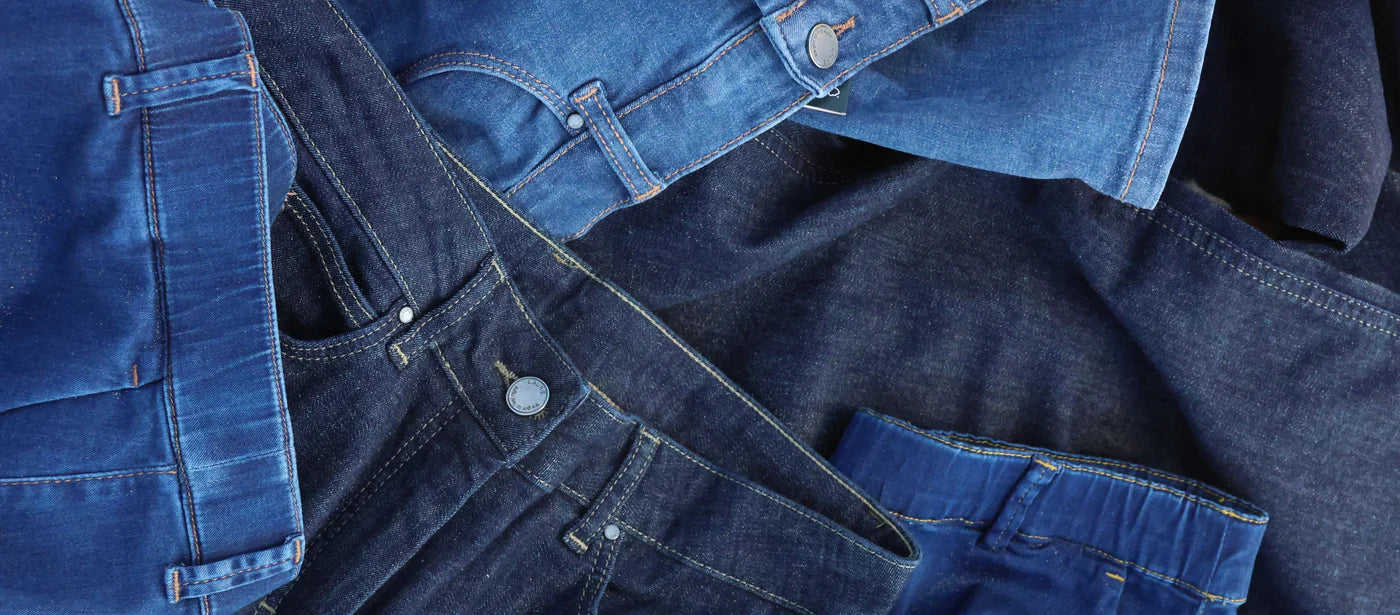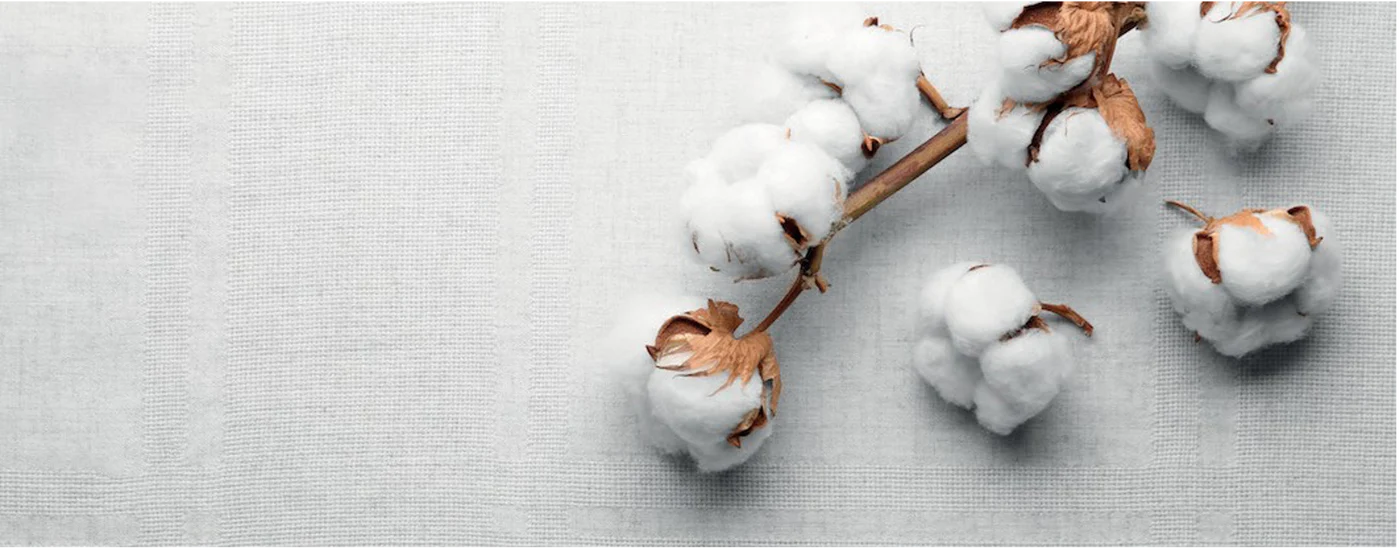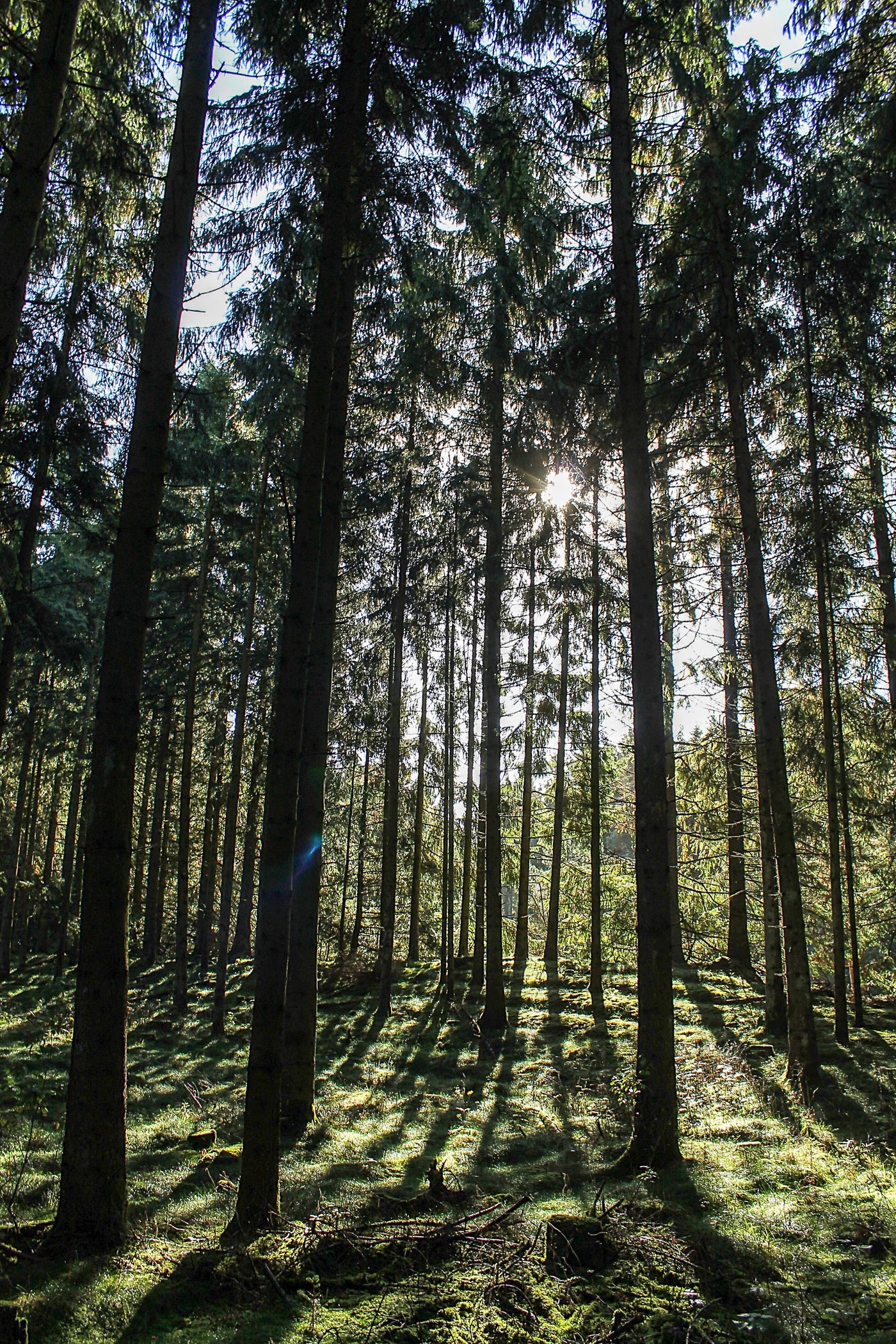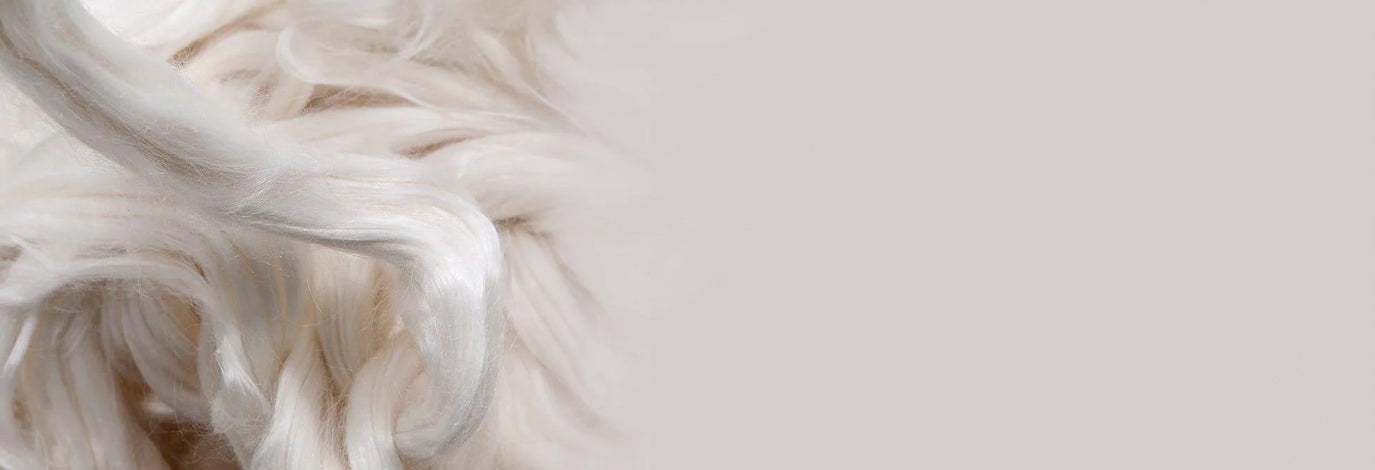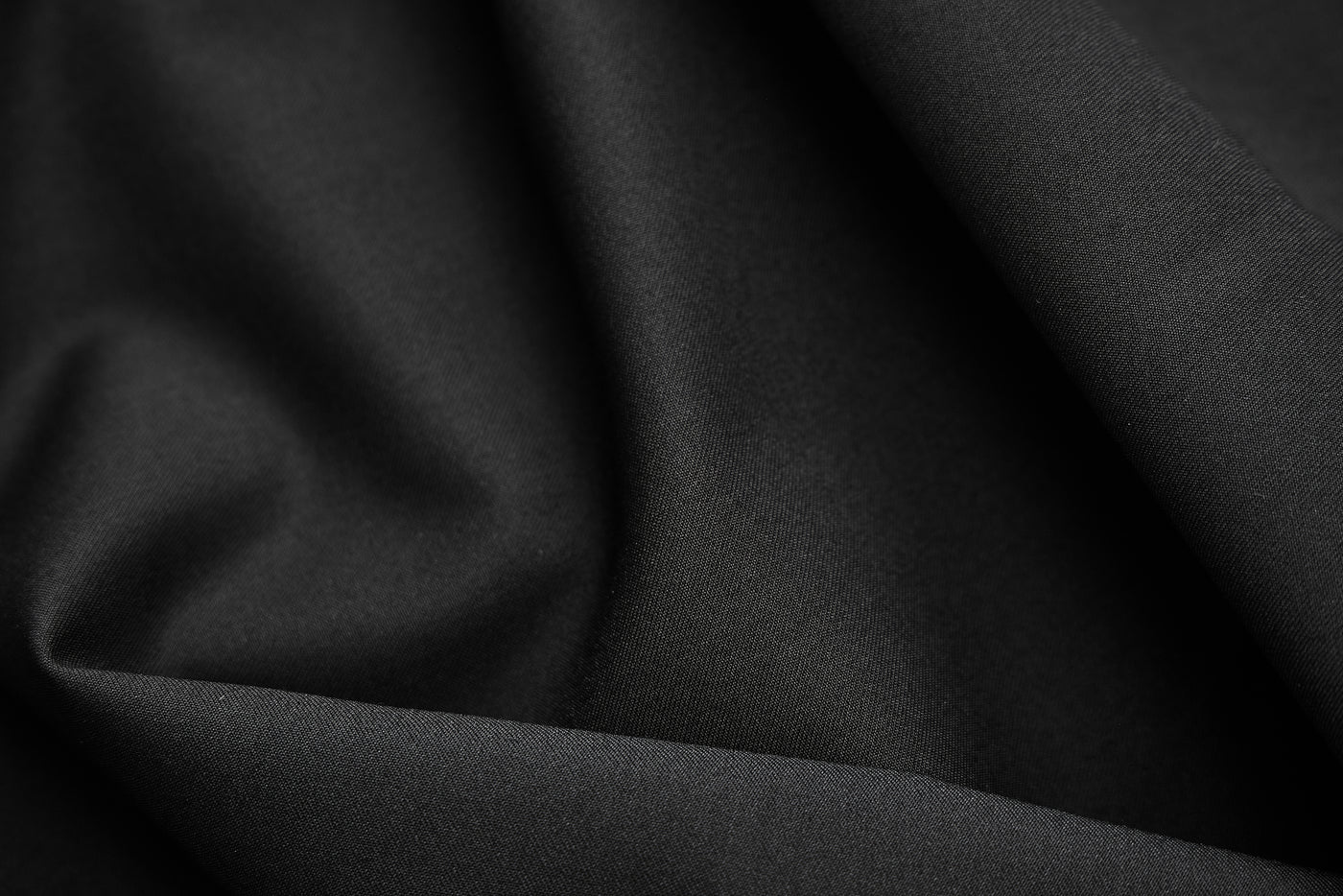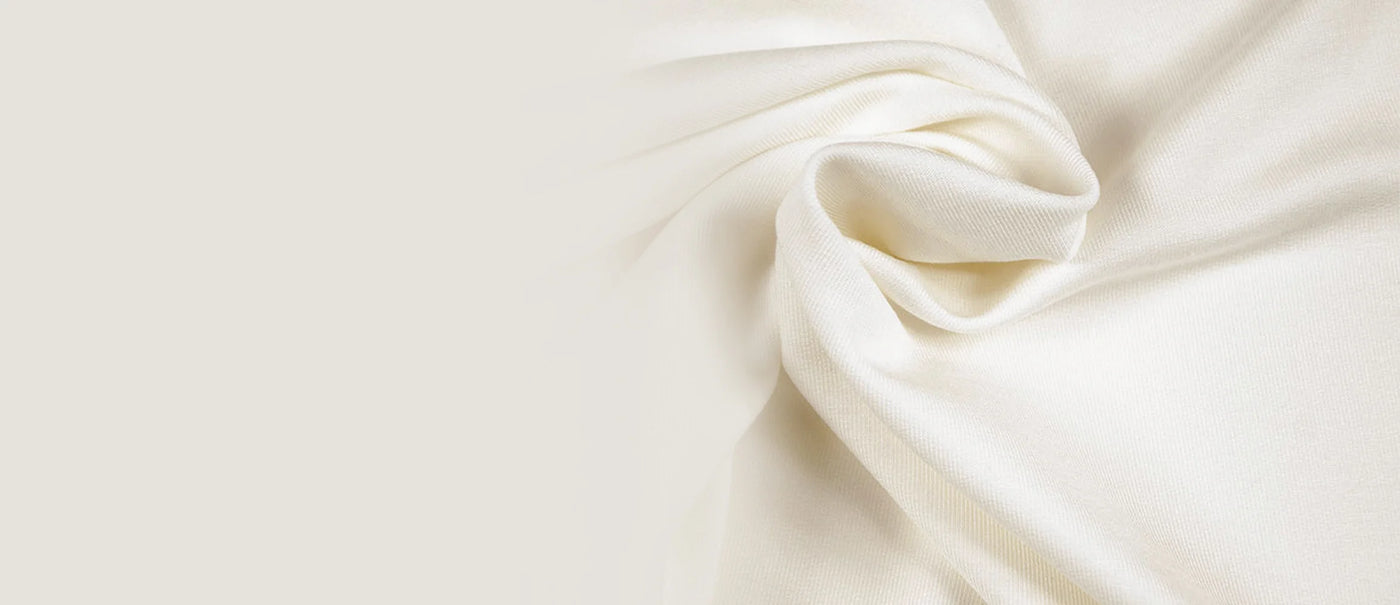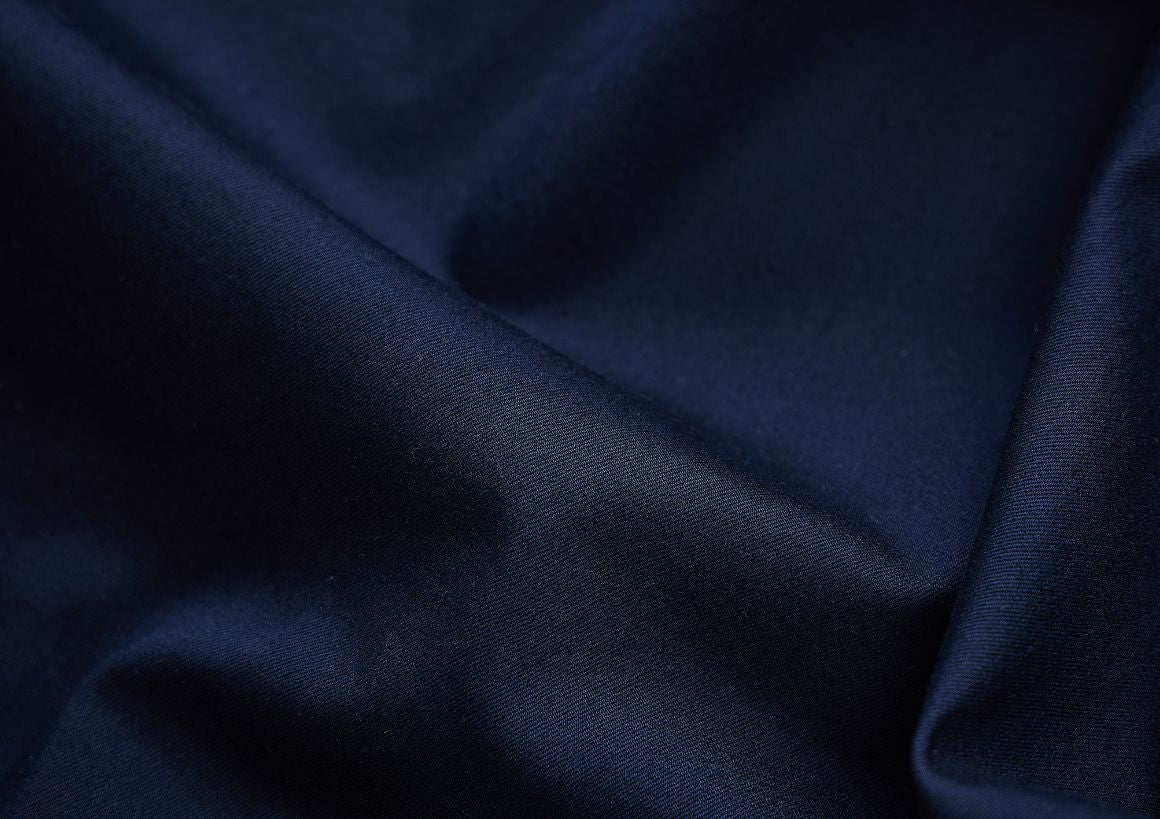OUR MATERIAL SELECTION
At LAURIE, longevity is paramount. We aim to create wardrobe favourites, and once you've fallen in love with a particular t-shirt or pair of trousers, we believe that love should never fade. Therefore, each of our materials is carefully selected, and we always seek out textiles on the market that are manufactured with the utmost consideration for both people and the environment.
There are several materials we love to work with due to their special quality and comfort. Learn more about them here on this page.
In fact, a full 25% of the world's total pesticide use comes from conventionally grown cotton. This poses a serious threat to the groundwater that supplies
water to many of the world's poorest production countries. Additionally, it puts rare natural habitats under pressure. Globally, less than 1% of the total cotton production is organic today. To classify cotton as organic, the following requirements must be met:
• No pesticides, insecticides, or defoliants may be used.
• No artificial fertilizers may be used.
• No genetic modification (GMO) may be used.
At LAURIE, we only use cotton that is organically grown. It's not enough that this type of cotton accounts for less than 1% of the world's total cotton production. Even though LAURIE is just a drop in the textile ocean, we take our responsibility very seriously. We do it for the sake of the cotton farmers. We do it for the sake of nature and all living beings. And we do it for your sake.
The production of organic cotton began around 1990, but the history of cotton goes back much further. Scientists have found pieces of cotton balls and cotton clothing in Mexican caves that are at least 7,000 years old. It was Arab merchants who introduced cotton clothing to Europe around 800 AD, and around 1500 AD, cotton was known throughout the world. However, the most groundbreaking event occurred in 1720 when the cotton machine was invented in England.
When you buy cotton clothing from LAURIE, you can be sure that it comes from organically grown cotton plantations where both people and the environment are
cared for.
LENZING™ ECOVERO™ is produced by the Austrian company Lenzing. The material is made from
renewable wood fibers, which are converted into textile fibers using much less water and energy than conventionally grown viscose requires. LENZING™ ECOVERO™
viscose fibers are certified with the EU Flower, which means that high environmental standards are met throughout the entire lifecycle – from raw material extraction to production, distribution, and disposal. Additionally, Lenzing has documented that the production of LENZING™ ECOVERO™ viscose fibers uses up to 50% less water and energy than conventionally produced viscose.
A special system makes it possible to identify LENZING™ ECOVERO™ viscose fibers in the final product, even after long processes in textile production and transformation in the value chain. When you buy clothes labeled with LENZING™ ECOVERO™ on the tag, you can be 100% sure where the sustainable viscose comes from.
At LAURIE, LENZING™ ECOVERO™ viscose accounts for 100% of our total viscose consumption. Trees are invaluable to our climate, and we are therefore proud that our viscose clothing is exclusively made from fibers from replanted forests. Or in other words: from forestry that is FSC® or PEFC™ certified.
When you buy clothes made from LENZING™ ECOVERO™ viscose at LAURIE, you contribute to taking care of nature's resources while indulging your skin with the softest
feeling.
At LAURIE, we are crazy about this relatively unknown material, and therefore, you'll find it in a wide range of our collections. You'll find it because the range of positive properties seems endless!
TENCEL™ Lyocell feels smooth and shiny like silk, cool and comfortable like linen, strong like polyester, and it's just as easy to wash as acrylic. Additionally, it can absorb more moisture than cotton, so you avoid feeling sweaty, and once you've fallen in love with a piece of TENCEL™ Lyocell, you can enter a long and happy relationship. TENCEL™ Lyocell doesn't lose its colour. Not after 10 washes, not after 20 washes, not after 30 washes.
The raw material is Lyocell, which consists of 100% pure cellulose. TENCEL™ Lyocell is a fiber derived from nature but artificially manufactured using modern technology. It is primarily the eucalyptus tree that forms the basis for the fiber production of TENCEL™ Lyocell. The eucalyptus tree is a very fast-growing tree that does not require artificial irrigation and at the same time yields a very high yield. This naturally brings many environmental benefits, and the tree can even be cultivated in areas where it is otherwise difficult to grow anything, and where neither food nor cotton can grow.
The production of TENCEL™ Lyocell takes place in a closed system, and almost 100% of the used chemicals and water can be reused. The amount of waste from the process is very small, and in the final phase of the lifecycle of the TENCEL™ Lyocell product, the fiber can also be recycled, just as 99% of the fiber is biodegradable.
If you haven't already acquainted yourself with TENCEL™ Lyocell, we strongly encourage you to get in touch with this fascinating material.
Why not just use recycled polyester then? – Some might be tempted to ask.
Recycled polyester is most often made from melted plastic bottles.
A plastic bottle can be recycled five to six times, while a t-shirt in recycled polyester is difficult to recycle as a textile fiber. This is because polyester is often used in combination with other materials such as elastane, and the industry still lacks technology that can separate the different materials on alarge scale.
Therefore, our view is that the plastic from recycled bottles used to produce recycled polyester serves a better purpose by remaining plastic bottles.
FIBERS AND FABRICS
WE AIM FOR
• Organic cotton
• LENZING™ ECOVERO™ viscose
• TENCEL™ Lyocell
• TENCEL™ Modal
• Livaeco by Birla Cellulose
• Recycled polyester • RefibraTM
• Peace silk
• Organic linen
• Wool RWS-certified
• Alpaca RAS-certified
WE ACCEPT
• Polyester (in blends)
• Polyamide (in blends)
• Linen • Elastane
• Silk
• Recycled wool
• Hemp
• Ramie
WE TRY TO AVOID
• Cashmere
• Acetate
• Mohair
WE DON’T USE
• Leather
• Nappa
• Suede
• Angora
• Fur
• Down
• Viscose
• Conventional cotton
• Regenerative cotton
• Recycled cotton





